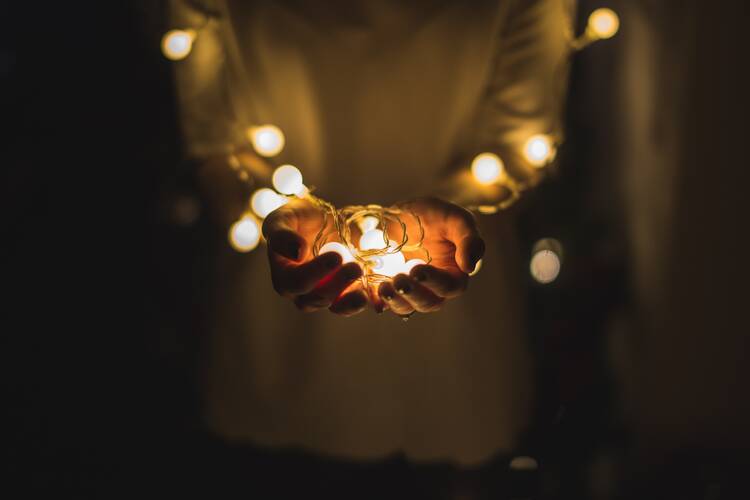A Reflection for the Third Sunday of Advent
Find today’s readings here.
I have a friend who has annoyed me ever since we met in college. He’s kind and generous in every way, but his mind is unpredictable and idiosyncratic. He has put this gift to good use as a painter, producing fantastic collage-style works that juxtapose everyday realities to reveal hidden meanings within them. For example, I never noticed that a certain coffee can is the same red color as the blood in media photos of defeated revolutionaries, but my friend has. He can show me things I can’t see for myself, and even though these realities are right in front of me, I find it unsettling to know that he and I are seeing the same world but understanding it so differently.
This, I think, was John the Baptist’s gift. He could see a light that no one else noticed, and he proclaimed it with such power that his listeners wanted to share in that light. The baptism they underwent was their symbolic attempt to conform their minds and hearts to John’s vision so that they could see the same light.
John’s light came purely through his deep study of the Scriptures. The Gospels do not speak of John experiencing visions, heavenly messengers or supernatural skills. At his conception, John received the same Spirit that we received at our baptism, but it allowed him to read Israel’s prophets with clarity. He knew that Christ was coming, and he knew the kind of world God was going to bring into being. The people who received John’s baptism and shared his vision would be ready to join their own hands, hearts and voices to the task on the day when God acted.
The light that John recognized has revealed itself perfectly in Christ. John’s preaching was the morning star; now we live in the full day of the Gospel, with its call to faith, forgiveness, love, generosity, and hope. This new reality, which at first only John could see, has now become the common inheritance of all Christ’s disciples.
If we choose, we can be humanity’s “annoying friend.” As stewards of the Gospel, we can see everyday things differently in the light of faith. In interactions and realities that the world finds to be sources of conflict, we can make opportunities for compassion or self-sacrificial love. The Baptism we offer in our daily ministry is not one of water but of word and example, as we help others understand why we see and respond to the world as differently as we do. Like great artists who look at the same tired world and see a luminous reality, the Spirit opens our minds to the presence of Christ still alive and at work among us. Pointing out this divine reality wherever we find it is how we raise our voices in the desert and prepare the world for God’s redeeming grace.








